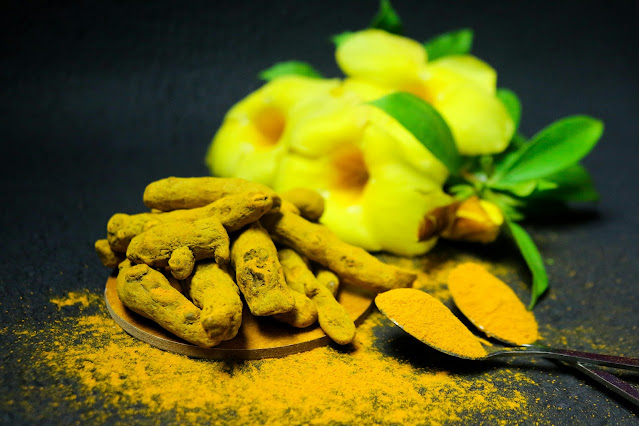Turmeric, a golden spice often found in Asian cuisines, is more than a flavorful addition to your favorite dishes—it’s a powerful natural supplement packed with health benefits. Known for its active compound, curcumin, turmeric offers many benefits, from enhancing memory and mood to supporting overall wellness. Here’s a closer look at the incredible health benefits turmeric provides.
1. Enhances Memory and Cognitive Function
Turmeric’s primary active compound, curcumin, has been shown to have positive effects on memory and brain health. Studies suggest that curcumin can improve cognitive function by reducing inflammation and promoting the growth of brain cells.
How it works: Curcumin boosts levels of brain-derived neurotrophic factor (BDNF), a protein crucial for memory and learning.
2. Elevates Mood and Combats Depression
Curcumin’s mood-enhancing effects are widely acknowledged. Its anti-inflammatory properties may help reduce the brain inflammation associated with depression.
Scientific insight: Studies have shown that curcumin can boost serotonin and dopamine levels, both of which are neurotransmitters linked to happiness and mood stability.
3. Supports Heart Health
Regular turmeric consumption can benefit cardiovascular health by improving endothelial function and reducing inflammation.
Details: The endothelium, the lining of blood vessels, plays a vital role in blood pressure regulation. Curcumin supports this lining, helping maintain healthy blood flow and preventing artery damage.
4. Boosts Immune System
Turmeric acts as a natural immune booster, thanks to its antioxidant and anti-inflammatory properties.
Explanation: Curcumin enhances the body's immune response by promoting the activity of immune cells and increasing resistance against infections.
5. Aids in Pain Relief and Reduces Inflammation
Known for its natural anti-inflammatory properties, turmeric can be especially helpful for those with arthritis and other inflammatory conditions.
How it works: Curcumin inhibits inflammatory molecules in the body, providing relief from chronic pain and swelling.
6. Improves Digestive Health
Turmeric is often used to support digestion, especially in traditional Ayurvedic medicine.
Why it’s beneficial: It helps stimulate bile production, which aids in digesting fats and can also soothe digestive disorders like bloating and gas.
7. Supports Liver Detoxification
Turmeric helps protect the liver from toxins, enhancing its natural detoxification process.
Mechanism: Curcumin increases the production of essential detoxifying enzymes in the liver, which helps clear harmful substances from the bloodstream.
8. Promotes Healthy Skin
Turmeric is commonly used in skincare due to its ability to fight acne, reduce hyperpigmentation, and soothe skin.
Beauty boost: Curcumin’s anti-inflammatory and antibacterial properties help with acne management, while its antioxidants slow down skin aging and improve skin elasticity.
9. May Help Prevent Alzheimer’s Disease
Studies suggest that curcumin can cross the blood-brain barrier and may help prevent neurodegenerative diseases, including Alzheimer’s.
Research findings: Curcumin’s antioxidant and anti-inflammatory effects reduce amyloid plaque buildup, which is linked to Alzheimer’s progression.
10. Potential Cancer-Fighting Properties
Turmeric is being studied for its role in cancer prevention, particularly for its ability to inhibit the growth of cancer cells.
The science: Curcumin interferes with cancer cell signaling pathways, making it a promising supplement for cancer prevention and adjunct therapy.
How to Include Turmeric into Your Diet
Turmeric Tea is a simple and warm way to enjoy turmeric’s benefits. Combine a teaspoon of turmeric powder with hot water, a pinch of black pepper, and honey.
- Golden Milk: This soothing drink, made with turmeric, milk, and spices, is a popular way to enjoy turmeric’s health benefits.
- Turmeric Supplements: Curcumin supplements are available for higher doses, often combined with black pepper for better absorption.
- In Cooking: Add turmeric to soups, stews, rice dishes, or smoothies for a vibrant color and a health boost.
Potential Side Effects of Turmeric
- Digestive Issues: High doses of turmeric may cause nausea, stomach upset, or diarrhea.
- Blood-Thinning Effects: Curcumin in turmeric can thin the blood, so caution is advised for individuals on blood-thinning medications.
- Kidney Stones: Turmeric can increase oxalate levels, potentially contributing to kidney stone formation in susceptible individuals.
- Iron Absorption: Turmeric may inhibit iron absorption, which could be a concern for those with iron deficiency.
- Allergic Reactions: Some people may experience skin rashes or allergic reactions when using turmeric, especially topically.
- Lower Blood Sugar: Turmeric can lower blood sugar levels, which might affect people with diabetes or those on blood sugar-lowering medications.









%20Causes,%20Symptoms,%20and%20Treatment.jpg)


0 comments:
Post a Comment